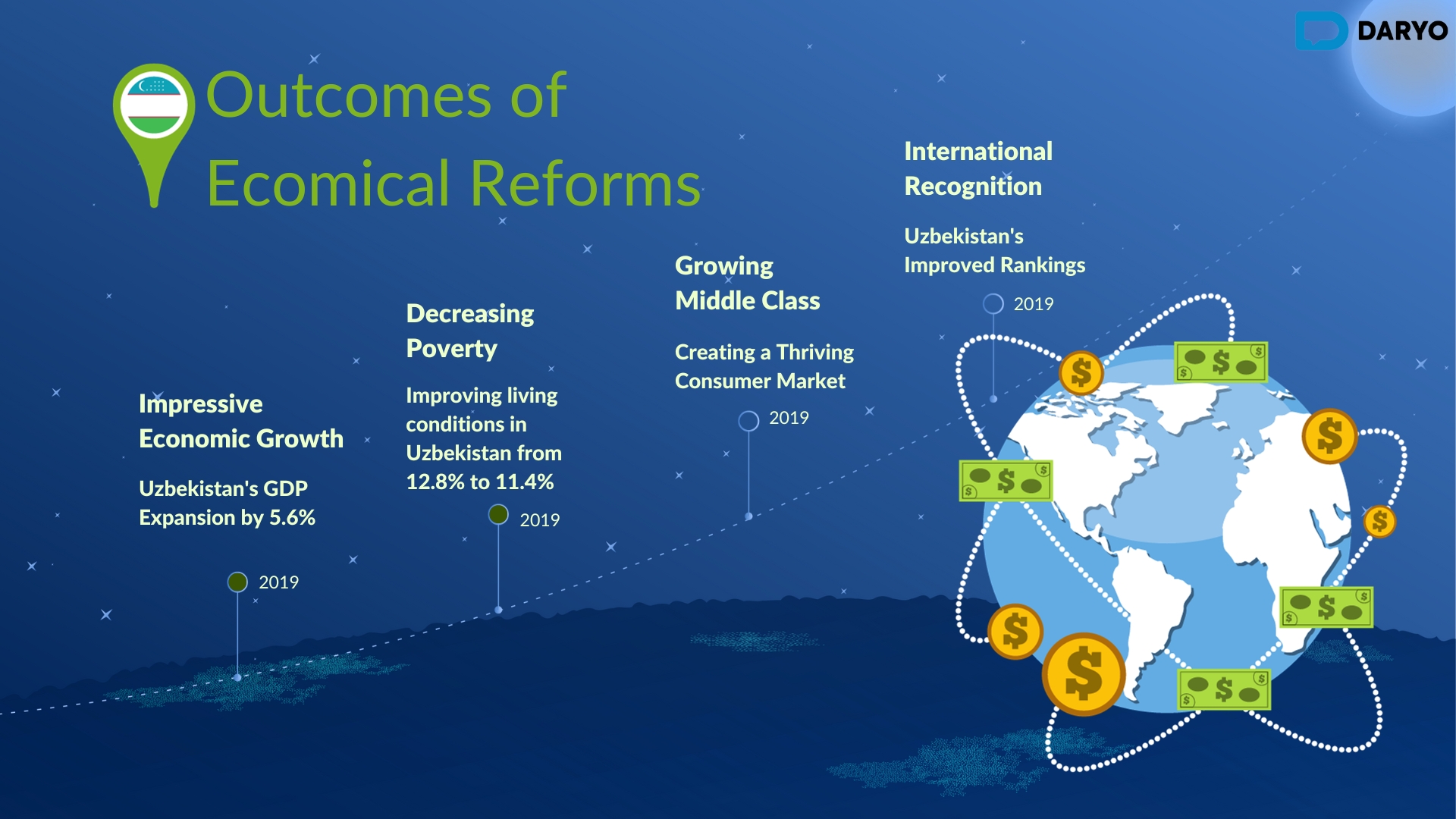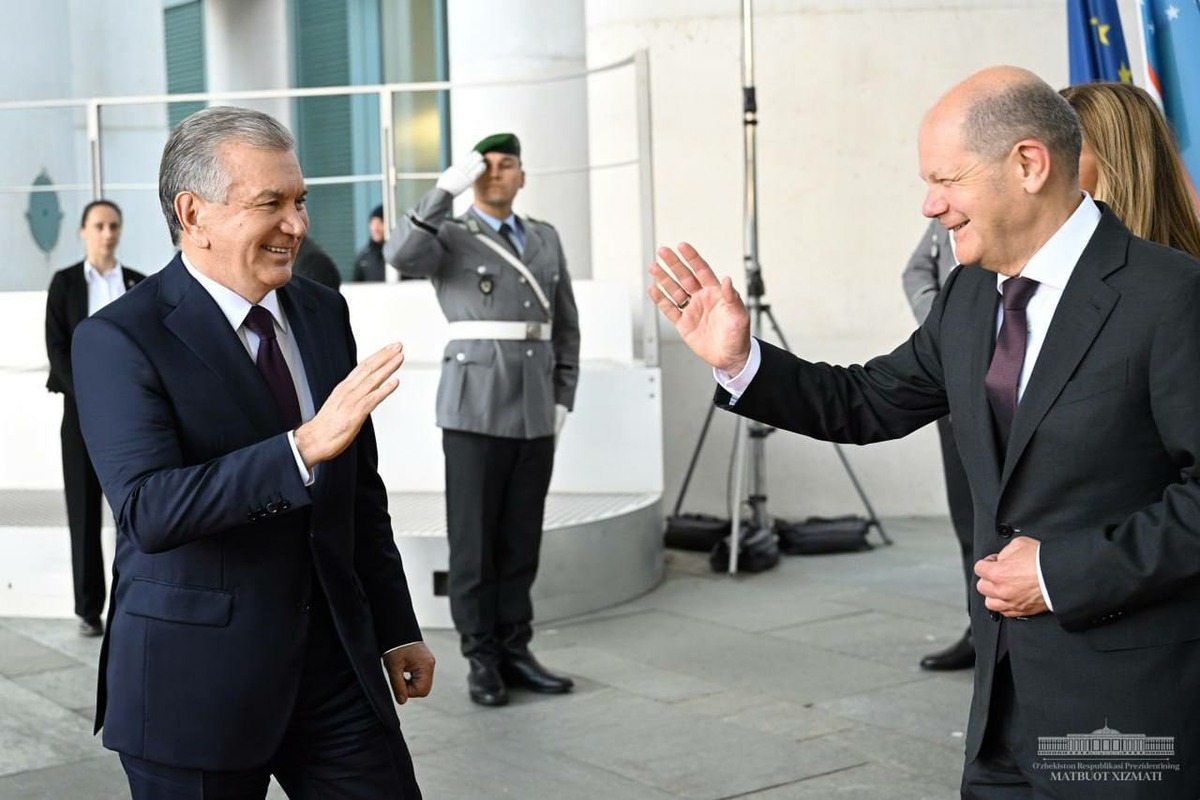In an exclusive interview with Daryo's editor Tawney Kruger, Ben Aris, the founder of BNE IntelliNews, sheds light on the remarkable economic transformation of Uzbekistan and its far-reaching global implications. Central Asia's strategic significance and economic potential have captured worldwide attention, prompting countries like Uzbekistan to engage in initiatives such as the C5+1 meetings actively. The C5-Germany meeting addressed current cooperation, followed by the Uzbek President's participation in the Economic Forum. At the Central Asia-Germany Summit, priority areas for long-term interaction were highlighted.

New Leader, new era of economy
Aris has been following Central Asia's development for over two decades and has witnessed the remarkable changes that have taken place in Uzbekistan since 2016 when Shavkat Mirziyoyev became president after the death of his predecessor, Islam Karimov.
"You know Uzbekistan's been sort of in limbo for about 20 years. Not to say there hasn't been progress under Karimov. Absolutely. There was progress. The economy is doubled or tripled in size." - Ben Aris.

Unleashing the Sleeping Giant: Uzbekistan's Journey of Reforms and Resurgence
According to Aris, Mirziyoyev's reforms have improved the situation in Uzbekistan on multiple fronts: political, economic, social, and regional. Politically, Mirziyoyev has introduced more transparency and accountability in the government, allowing for greater public participation and media freedom. Economically, he has liberalized the currency, reduced red tape, privatized state-owned enterprises, and attracted foreign investment. Socially, he has increased wages, pensions, and social benefits, as well as promoted education and health care. Regionally, he has improved relations with neighbouring countries, especially Kazakhstan and Kyrgyzstan, and fostered trade, energy, water, and security cooperation.
- Uzbekistan's reforms have led to impressive economic growth, with the country's GDP expanding by 5.6% in 2019, positioning it as one of the fastest-growing economies globally.
- The poverty rate in Uzbekistan has significantly decreased, dropping from 12.8% in 2017 to 11.4% in 2019. This reduction has lifted millions of individuals from poverty and improved living conditions.
- Implementing reforms has contributed to the growth of the middle class, which has expanded from 15% of the population in 2003 to 25% in 2019. This rise in the middle class has created a new consumer market, stimulating demand for goods and services.
- Uzbekistan's efforts to implement reforms have improved rankings in various international indicators. The country has seen advancements in the Ease of Doing Business Index, Corruption Perceptions Index, and Human Development Index, reflecting positive changes in the business environment, transparency, and overall development.

Balancing ties with Russia, China, and the West
Aris also points out the external factors contributing to Central Asia's rise in global geopolitics. He notes that the ongoing conflict in Ukraine has led to a shift in the balance of power between the West and Russia, with both sides imposing sanctions on each other. During the Cold War, 3 bn people were in the capitalist system and 3 bn the socialist experiment. However, the failure of the socialist experiment led to the integration of those 3 bn people into the capitalist world. Despite political differences, there is a shared goal of global integration into a single market, although the process currently faces some fragmentation.
Aris states that Central Asia faces unique challenges in this context. The region has longstanding cultural, historical, and economic ties with Russia and China. Aris emphasized that Uzbekistan has become an increasingly attractive destination for domestic and international investments. The country's capital markets have witnessed a surge in interest, with many companies and investors paying attention to available opportunities. This has led to a vibrant middle class, crucial for sustaining economic growth and creating a solid foundation for a developed market.

Aris discussed the importance of balancing Uzbekistan's ties with Russia, China, and the West. While the West has been imposing sanctions on Russia, Central Asian countries, including Uzbekistan, have historic and economic ties with Russia. Aris noted that demanding Uzbekistan to sever its ties completely would be unreasonable, especially considering the lack of significant investment and trade from Europe and America.
Logistics and Transportation in Central Asia's Integration
China's large-scale railway projects in Central Asia face challenges and geopolitical considerations. The projects, costing bns of dollars, are not a simple process, and concerns exist regarding potential debt traps associated with Chinese financing. While the goal is to establish alternative transportation routes dominated by sea trade, political control, and strategic advantages are sought through land routes. The commercial rationale for diversification is high, despite the cost-effectiveness of shipping. The completion of these projects will take time, with competing routes emerging. The evolving global economy and changes in supply chains further impact logistics, including the energy market shift towards Asia. Geopolitical factors, economic motivations, and adaptability will shape the success of China's railway initiatives in Central Asia. Logistics and transport play a crucial role in this integration, with the COVID-19 pandemic further reshaping supply chains and emphasizing the need for adaptability and efficiency.
.jpg)
Furthermore, the dynamic changes in the global energy market have also impacted logistics and transportation. Russia, for example, has shifted its focus from exporting oil and gas to Europe, redirecting its resources to Asian markets.
Given these circumstances, Uzbekistan has actively participated in the C5+1 meetings, engaging with China, Germany, Saudi Arabia, and the United States. These meetings highlight the desire of Central Asian countries, including Uzbekistan, to maintain good relations with regional powers while actively integrating into the international community. He asserts that Central Asia is no longer a periphery but a centre of gravity for global affairs.

Aris stated that during a recent meeting with Uzbek officials in Germany, it was observed that Uzbekistan is actively pursuing a multi-vector policy, seeking partnerships with various countries such as the United States, Europe, Russia, China, and the global South. The German Foreign Ministry has shown a newfound interest in Central Asia, focusing on engaging and discussing with countries in the region, potentially leading to increased German investment. Germany has historically had a strong interest in the former Soviet Union and Eastern Europe, and its expertise in these regions extends to Central Asia. With its position as the de facto leader of Europe, Germany is taking the lead in engaging with Central Asia, attracting interest from Central European presidents and fostering tangible progress, investment, and cooperation.
Thirsty Nation: Uzbekistan's investment climate
The investment climate in Uzbekistan is gaining traction compared to other Central Asian countries as Uzbekistan faces a serious water crisis compounded by climate change. The country has experienced devastating consequences, including severe droughts and water rationing. Climate change is causing extreme temperatures, and the effects are being felt across the globe. With a large population, Uzbekistan offers an attractive market for investors. For example, multinational companies like Coca-Cola have already set up factories in the country to tap into the sizable consumer market. However, it's worth noting that Uzbekistan still faces challenges due to its relatively low per capita income compared to countries like Kazakhstan. While the income levels limit immediate profits, the country's young and growing population presents long-term growth potential.

Entry of early investors and manufacturing potential in Uzbekistan
Similar to the experience in Eastern Europe, Uzbekistan is witnessing the entry of early investors such as fast-moving consumer goods companies like Proctor and Gamble, Nestle, and Philip Morris. These companies are interested in capturing market share and are attracted by the country's potential for growth. Additionally, the availability of low-cost labour makes Uzbekistan an appealing destination for manufacturing, attracting companies like Nike, Adidas, and H&M, to consider establishing production facilities in the country.
Central Asia's rise is a remarkable story that deserves more recognition and appreciation. Uzbekistan's transformation is especially noteworthy as it demonstrates how a country can overcome its legacy of isolation and stagnation and achieve progress and prosperity.
Written by Sabina Aliyeva
Follow Daryo's official Instagram and Twitter pages to keep current on world news.
Comments (0)